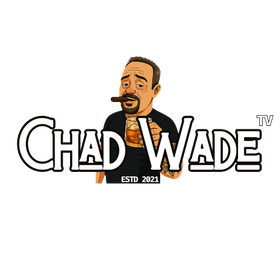Most smoke shop owners run promotions the way they play scratch‑offs—random, desperate, and hoping for luck.
They throw up a “10% OFF EVERYTHING” sign when sales feel slow, then wonder why the discount didn’t move the needle. Spoiler: it didn’t move the needle because it wasn’t a plan.
If you want promotions that actually grow sales instead of just shaving your profit, you need a promotion calendar. Not a vague list of ideas you might run. A real, week‑by‑week system that keeps your shop consistent, visible, and profitable.
Why a Promotion Calendar Works
1. Consistency Builds Customer Habits
If customers know Friday = bundle deals, they’ll show up on Friday. If you’re random, they won’t.
2. You Never Miss Seasonal Spikes
420, tax refund season, back‑to‑school, holidays—these weeks bring big money. A calendar makes sure you’re ready.
3. Keeps Staff Focused
Your employees shouldn’t be guessing what to push. A calendar tells them, “This week we move glass. Next week we push disposables.”
4. Measures What Works (and What Doesn’t)
You can’t improve what you don’t track. A set calendar lets you compare week over week and adjust.
The Building Blocks of Your Calendar
Seasonal Promotions (Anchor Events)
These are your “tentpole” moments that always need planning:
-
January: “New Year, New Gear” – detox, storage, glass upgrades.
-
February: Valentine’s bundles.
-
April: 420 blowout (the Super Bowl of smoke shops).
-
July/August: Travel and festival season—push disposables and kits.
-
November: Black Friday deals.
-
December: Holiday gifting—higher‑end glass, bundles, gift cards.
Monthly Focus
Pick one category per month to push:
-
Glass, Disposables, Wraps, CBD, Kratom, Accessories.
This keeps your marketing sharp instead of scattered.
Weekly Anchors
Repeatable promos that customers learn to expect:
-
Munchie Mondays – 2‑for‑1 on wraps and papers.
-
Wax Wednesdays – Discounts on rigs and torches.
-
Flash Fridays – Surprise limited‑time sale (keeps traffic up).
How to Build Your Promotion Calendar
Step 1: Map the Year
Put in the big seasonal events first. These are non‑negotiable.
Step 2: Layer in Monthly Themes
Decide what product category you’ll push each month.
Step 3: Drop in Weekly Anchors
Pick 1–2 weekly promos that repeat and can run on autopilot.
Step 4: Assign Roles
Who updates the signs? Who posts to social? Who trains staff? Promotions fail when nobody owns the execution.
Step 5: Review and Adjust
At the end of each month, look at sales. Did the promo increase tickets? Did traffic rise? If not, change the offer or kill it.
Example: A Winning Month of Promos
March (Monthly Theme = Glass)
-
Week 1: BOGO 50% off grinders when buying any glass piece.
-
Week 2: Free lighter with every water pipe purchase.
-
Week 3: Discount on cleaning supplies (upsell to glass buyers).
-
Week 4: Raffle entry for each $50 spent—winner gets heady glass.
Notice: every week pushes the same category. It’s focused, consistent, and trains staff/customers what to expect.
Do’s and Don’ts of Running Promos
Do:
-
Keep promos simple (if customers need a calculator, it’s wrong).
-
Use promos to move slow inventory by bundling with hot sellers.
-
Advertise across every channel: signs, socials, bag stuffers, staff pitches.
-
Train employees on what to say (upselling is worthless if nobody pitches).
Don’t:
-
Discount your best sellers every week—you’ll train customers to only buy on sale.
-
Run “storewide” promos. They cut deep into margins and look desperate.
-
Forget to track the impact. If you don’t measure, you’re guessing.
-
Overcomplicate with fine print—confused customers walk away.
Final Word
Promotions aren’t about slapping discounts on products. They’re about discipline and predictability.
A promotion calendar forces you to plan, execute, and repeat. That’s how you stop leaving money on the table and start running a smoke shop that grows steadily instead of chaotically.
Guesswork is for amateurs. Real shop owners plan.

